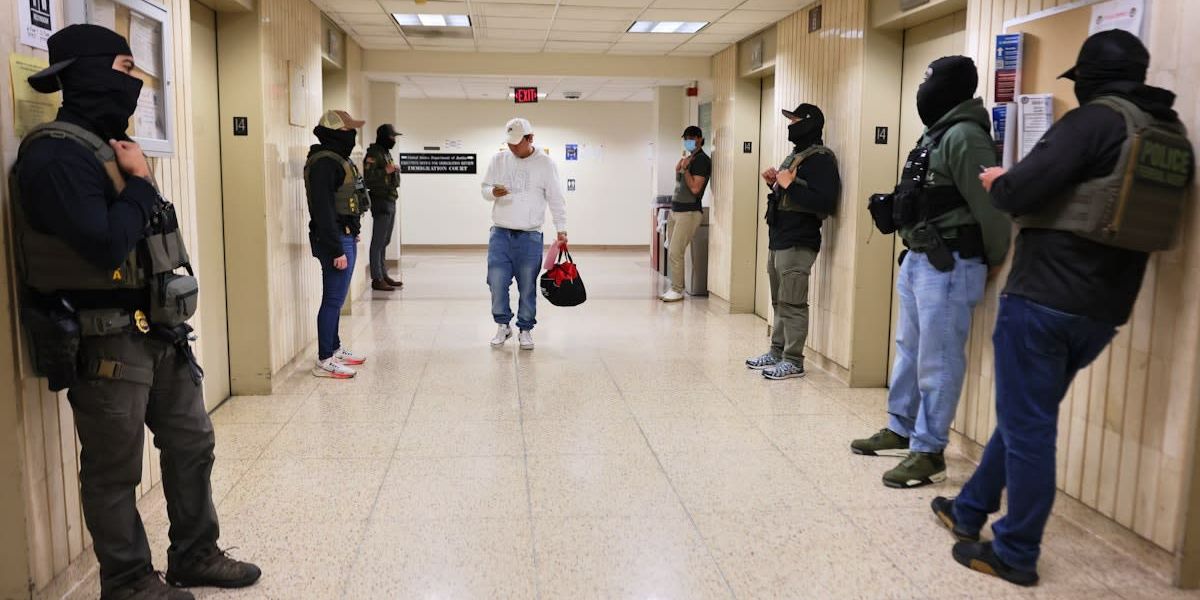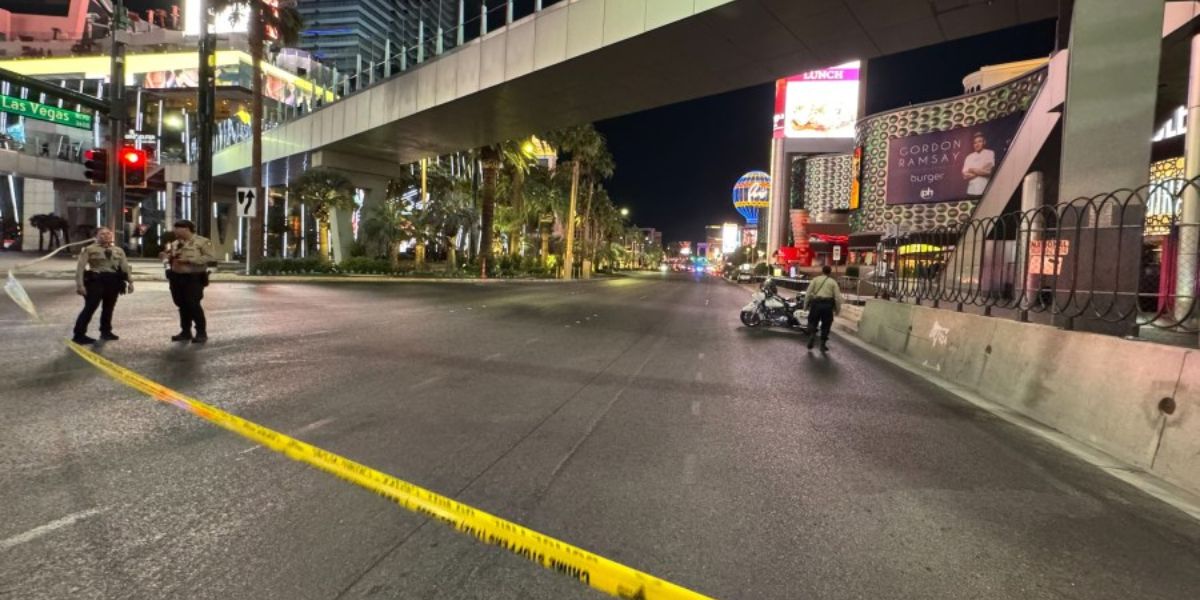HAWTHORNE, Calif. — A heavily pregnant woman who says she repeatedly told federal agents she was a U.S. citizen was arrested and detained over the weekend during an immigration enforcement operation in Southern California — drawing renewed attention to how immigration policies are affecting local communities, particularly during a politically charged surge in ICE activity.
On Sunday, June 9, Cary López Alvarado, 28, was forcibly detained by U.S. Customs and Border Protection (CBP) agents in Hawthorne as they pursued her undocumented partner and another co-worker. López Alvarado, who is 39 weeks pregnant, said she told agents she was born in Los Angeles, but was nevertheless handcuffed and separated from her partner during the incident.
“I crouched down and held my belly, because I was scared they would hurt me,” she told Noticias Telemundo from her home after her release. “Three agents were grabbing me and trying to handcuff me.”
The Incident:
López Alvarado and her cousin, both U.S. citizens, were opening the gate to a private parking lot for López’s partner, Brian Nájera, and a co-worker when agents in marked CBP vehicles descended on the scene. The group had been working maintenance at the property.
López said she tried to stop agents from entering the building, citing private property rights and demanding a warrant. Video she recorded shows her standing in front of a gate, calmly telling agents, “I’m gonna need you guys to leave. This is private property.” An officer responds, “You are interfering with my arrest. … Can you please move away?”
“I wasn’t resisting or anything,” she told NBC Los Angeles. “I can’t fight back; I’m pregnant.”
Medical and Legal Fallout:
After her arrest, López Alvarado experienced severe abdominal pain and was hospitalized for a day to monitor her and her baby’s health. She is due to give birth on June 17.
The Department of Homeland Security confirmed the arrest in a statement, saying López Alvarado was taken into custody for obstruction. Assistant DHS Secretary Tricia McLaughlin added that officers were “assaulted” during the incident and that “anyone who actively obstructs or assaults law enforcement… will face consequences.”
López Alvarado insists she did nothing violent or illegal. “They were pushing me. I was scared for my baby,” she said.
Her cousin, Alberto Sandoval, remains in custody facing assault charges. Family members and witnesses dispute the charges, saying video evidence will show he was attacked first.
A Wider Pattern:
The detention came amid a broader ICE crackdown across Southern California last weekend, during which dozens were arrested — leading to five consecutive days of mass protests in Los Angeles. Activists and civic groups have criticized the operations for creating a climate of fear, particularly in cities like L.A. where immigrant communities are deeply embedded in the social and economic fabric.
Demographic Context:
Los Angeles County, where the incident occurred, is home to nearly 10 million residents — over a third of whom are foreign-born. Mixed-status families are common, and nearly 1 in 5 residents lives with at least one undocumented family member, according to data from USC’s Equity Research Institute.
Civil Rights and Oversight:
Legal experts and immigrant rights advocates are raising concerns about the legality of López Alvarado’s arrest, particularly given her U.S. citizenship and lack of formal charges. “This case raises troubling questions about due process and the rights of U.S. citizens during ICE operations,” said Juan Carlos Aguilar, a civil liberties attorney based in Los Angeles.
According to Aguilar, federal agents must have reasonable suspicion and cannot detain someone indefinitely without probable cause. “That she was let go without paperwork suggests they had no grounds to hold her in the first place.”
What’s Next:
López Alvarado says she has not received any paperwork related to her arrest and fears further targeting. Her partner remains in custody, and no update has been provided to her regarding his status.
Public Response:
The case has intensified public scrutiny of federal immigration tactics and triggered new calls for oversight. Local lawmakers and community organizations have begun demanding transparency and accountability in how ICE and CBP operate in residential and commercial areas.




